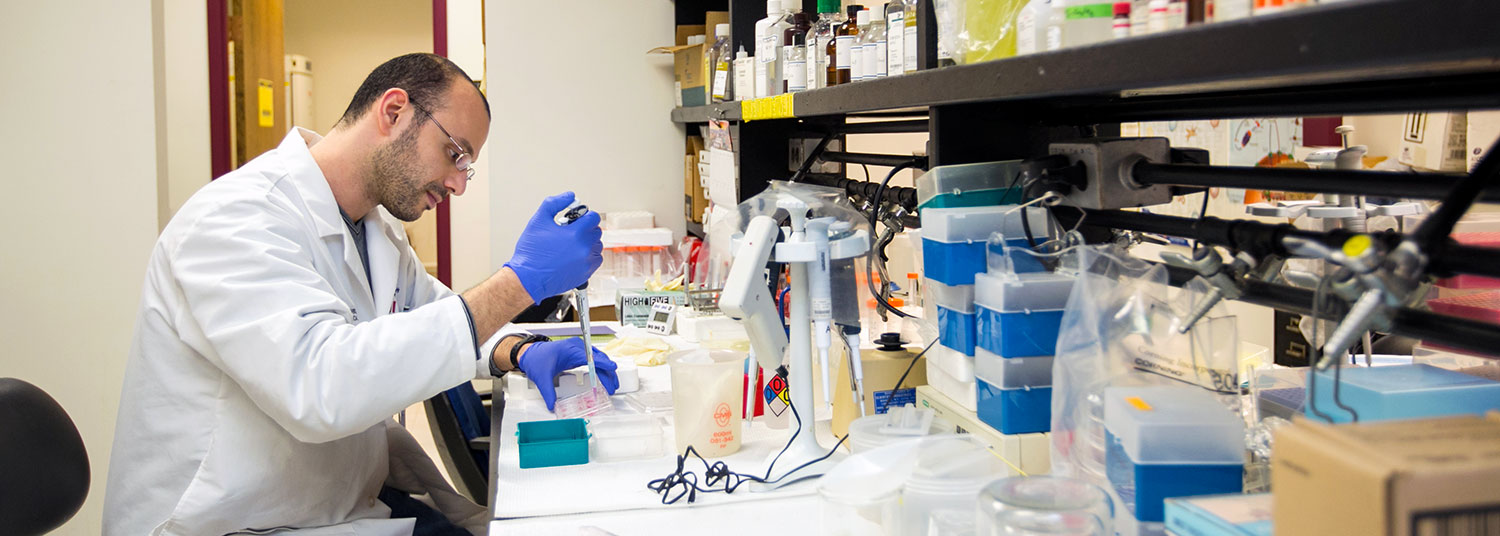Excellence in Basic Science
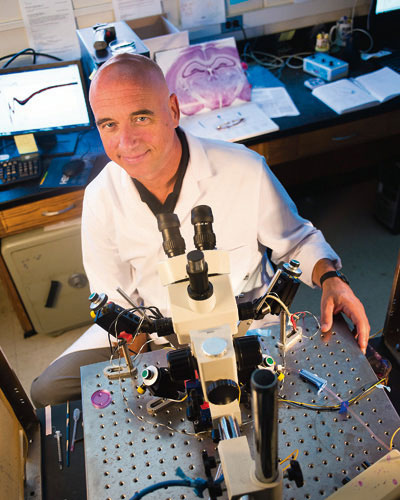 There are two fundamental goals of science: understanding our world and ourselves and improving our lives through the development of technology and treatments for disease. Basic science research is at the heart of each of these goals. Knowledge gained by curious scientists teasing apart the intricate clockwork of biological processes and physical forces often leads to discoveries that can be translated directly into powerful tools for manipulating our environment or bolstering our health.
There are two fundamental goals of science: understanding our world and ourselves and improving our lives through the development of technology and treatments for disease. Basic science research is at the heart of each of these goals. Knowledge gained by curious scientists teasing apart the intricate clockwork of biological processes and physical forces often leads to discoveries that can be translated directly into powerful tools for manipulating our environment or bolstering our health.
Among the University of Maryland School of Medicine’s 25 departments, five are dedicated specifically to making basic science discoveries: Anatomy and Neurobiology, Biochemistry & Molecular Biology, Microbiology and Immunology, Pharmacology, and Physiology. Each of these departments has made outstanding basic science contributions and each works in unison with the school’s many clinical departments to attempt to transform important findings into clinical treatments.
“One of the great things about the University of Maryland School of Medicine is the incredibly tight integration between basic science—the fundamental discoveries—and the clinical enterprise,” says Scott Thompson, Ph.D., Chair, Department of Physiology. “We collaborate closely with clinicians to understand what problems the patients are facing and to find better ways to treat their conditions.”
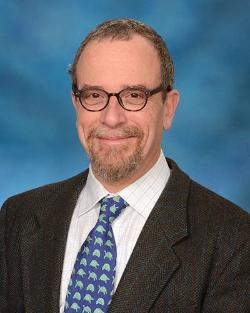 Anatomy & Neurobiology
Anatomy & Neurobiology
Basic research in the department of Anatomy & Neurobiology is split into two major areas of focus. A core of department researchers investigates diseases that sit at the intersection of addiction, pain and psychiatric disorders, such as depression and PTSD. Asaf Keller, Ph.D., Professor of Anatomy and Neurobiology, says that many patients suffer from a combination of these diseases, and that the underlying pathology of these diseases involves similar, overlapping brain circuits. “Discoveries related to one of these diseases informs our understanding of the others, and studying the common mechanisms of these diseases may lead to novel approaches to prevent and treat all of them.”
Another area of intense interest to the department is exploring the molecular mechanisms of neurodegenerative disorders, such as ALS (Lou Gehrig's disease), Alzheimer’s disease, and Huntington’s disease.
Research in the department also focuses on the chemical senses, neural networks, computational neurobiology, molecular biology, neurophysiology, and neuroendocrinology.
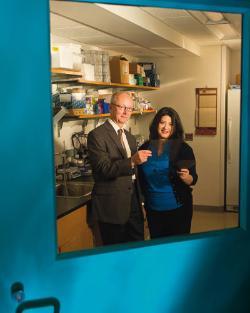 Biochemistry & Molecular Biology
Biochemistry & Molecular Biology
Biochemistry & Molecular Biology faculty pursue discovery science that is dedicated to understanding life at the biochemical, genetic and cellular level. The department emphasizes expertise in understanding how cancer cells escape normal control and cause disease, control of muscle cell differentiation and structure, and development of new technologies to image cells and proteins, and technologies designed to identify new therapeutic targets and drugs.
BMB investigators study a wide range of topics, including protein structure, signal transduction mechanisms, apoptosis, cancer biology, tumor suppressors, DNA repair processes, muscle contractile mechanisms, and fluorescent measurement methods. Their efforts include the use of high-tech instrumentation including nuclear magnetic resonance, fluorescence spectroscopy, crystallography and fluorescent cell imaging.
As part of the department’s efforts to discover new disease targets, investigators use a state-of-the-art 950 MHz nuclear magnetic resonance (NMR) spectrometer (one of only two in the country) and advanced fluorescence methods to explore the spatial features of proteins to identify “pockets” in that can accommodate therapeutic agents. Faculty members also manage the Center for Biomedical Therapeutics and the Fluorescence Spectroscopy Center.
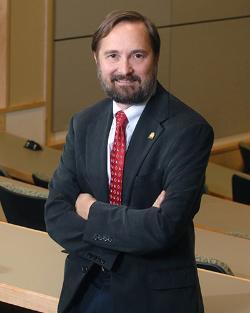 Microbiology & Immunology
Microbiology & Immunology
“It’s often difficult to predict when and where basic research will have a big translational payoff into applied products,” says James Kaper, Ph.D., Chair, Department of Microbiology and Immunology. “The example I always think of is the very basic research into why bacterial viruses might infect some but not all strains of a bacterial species. This research led to the discovery of DNA-cutting enzymes that formed the foundation of the whole field of genetic engineering.”
Areas of strength in Microbiology and Immunology include: diseases related to inflammation; tick-borne diseases; bacterial and viral pathogens of the respiratory and intestinal tracts; autoimmune diseases; cancer immunotherapy; and basic immunology.
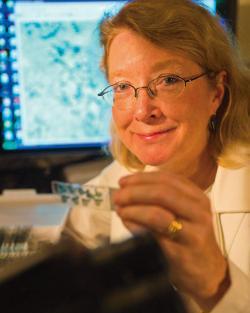 Pharmacology
Pharmacology
“You don’t know what you’re going to discover until you discover it,” says Margaret McCarthy, Ph.D., Chair, Department of Pharmacology. “It’s been shown time and again that allowing scientists to pursue their own curiosity allows them come up with discoveries that have significant impacts on human health and human disease.”
The interests of the Pharmacology department are split between oncopharmacology and neuropharmacology. “In neuropharmacology, figuring out how the brain works normally can provide insight into where to look for abnormalities in neuropsychiatric disorders, addiction, and deficits in learning and memory,” says McCarthy.
In oncopharmacology researchers focus on cancers impacted by steroid hormones such as prostrate and breast cancer. They foster new drug development and further the goal of a better understanding of the mechanisms governing existing drugs and toxins.
Physiology
Department of Physiology scientists study the causes and mechanisms of human disease, including Alzheimer’s, cancer, epilepsy, heart failure, hypertension, infertility, muscular dystrophy and stroke.
“The only way that we can deliver the clinical advances that are needed is to begin our studies in animal models and in tissue and genetic studies,” says Scott Thompson, Ph.D., Chair, Department of Physiology. “Every lab, regardless of which organ system they work on and which tissue system they’re interested in, is highly motivated to treat human disease.”

